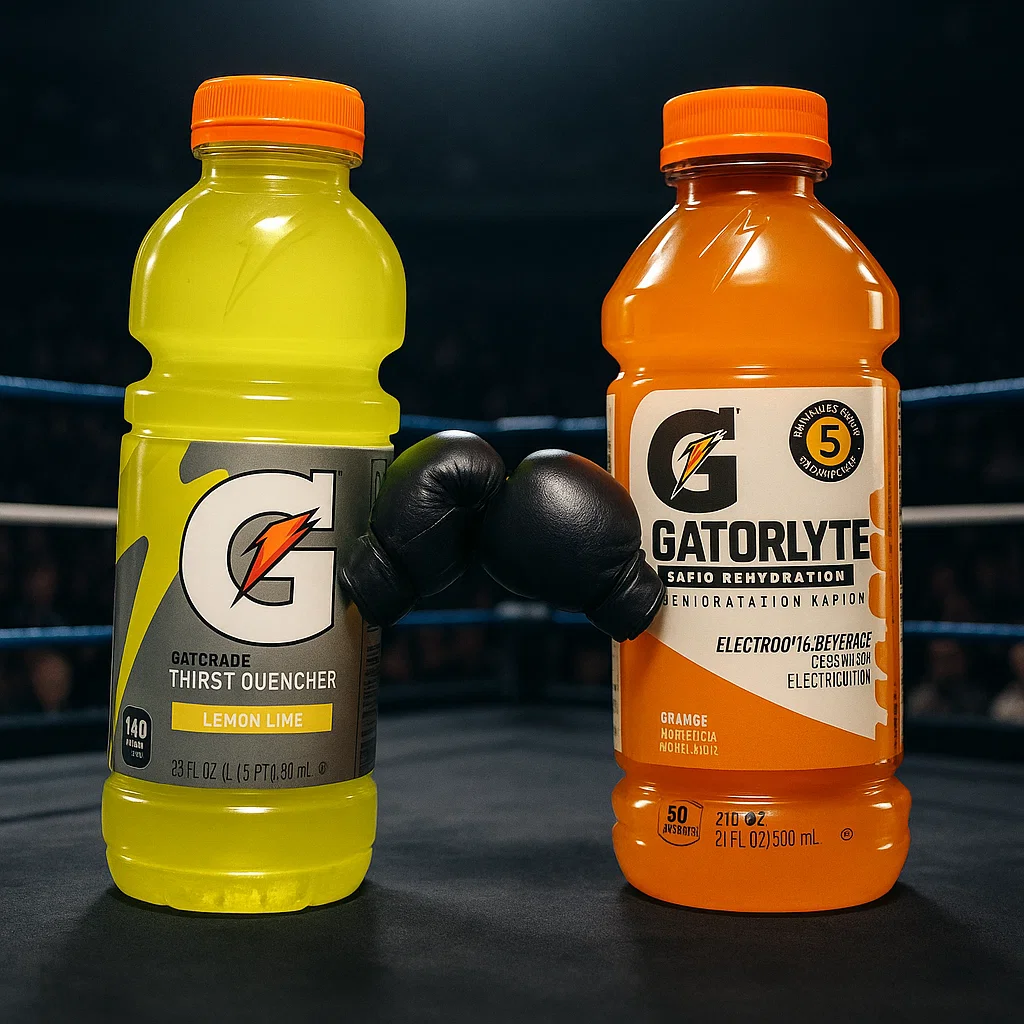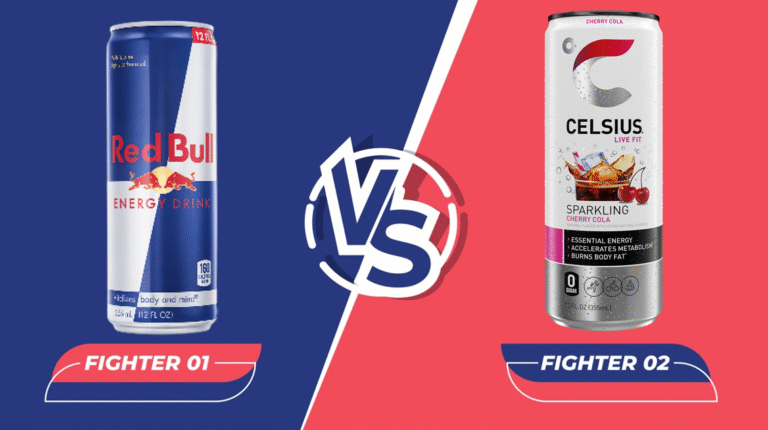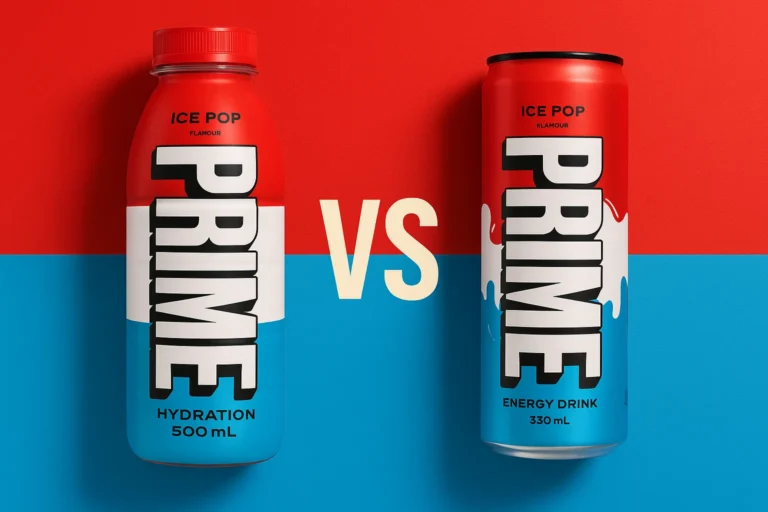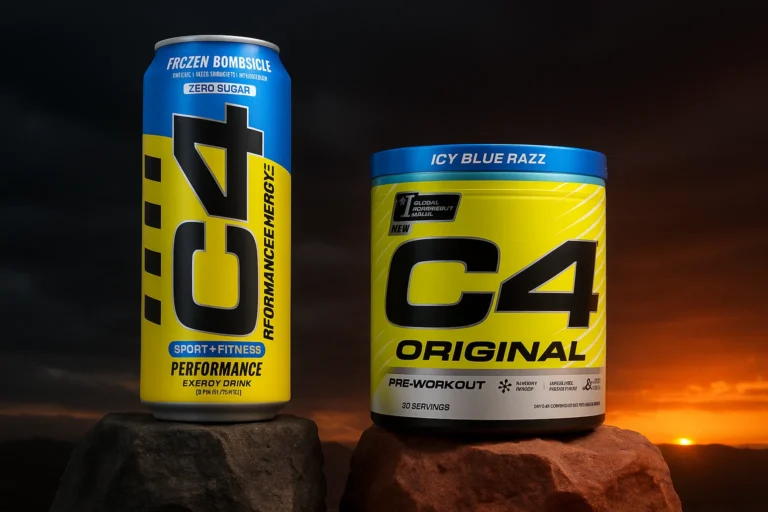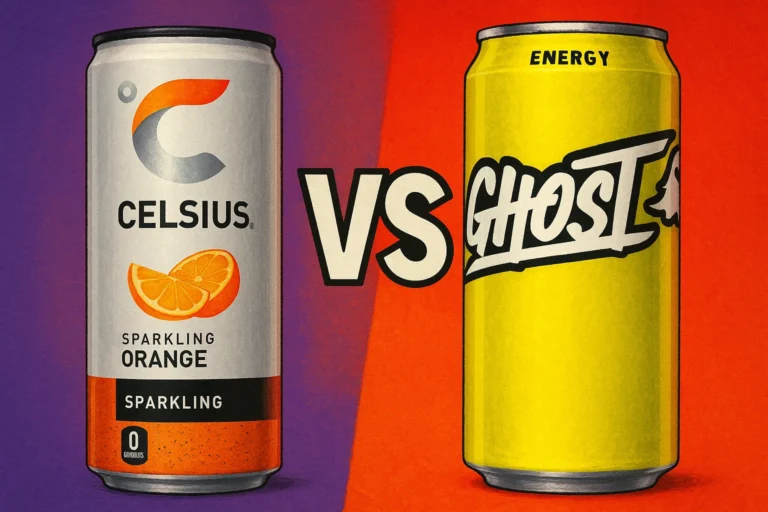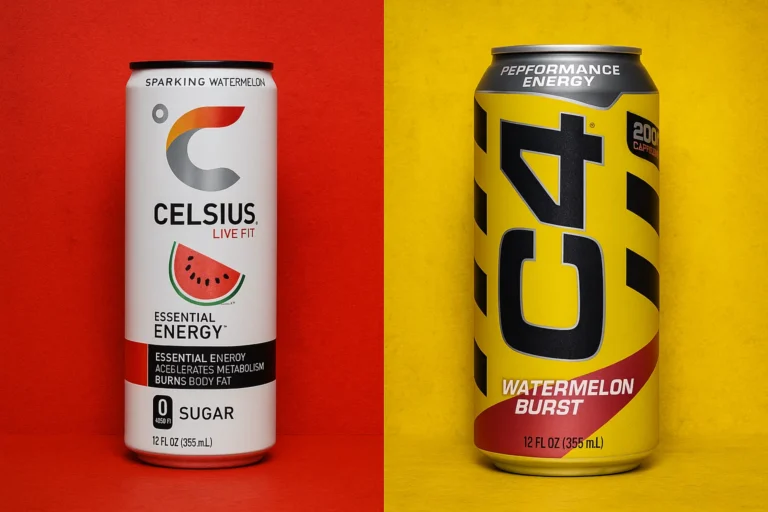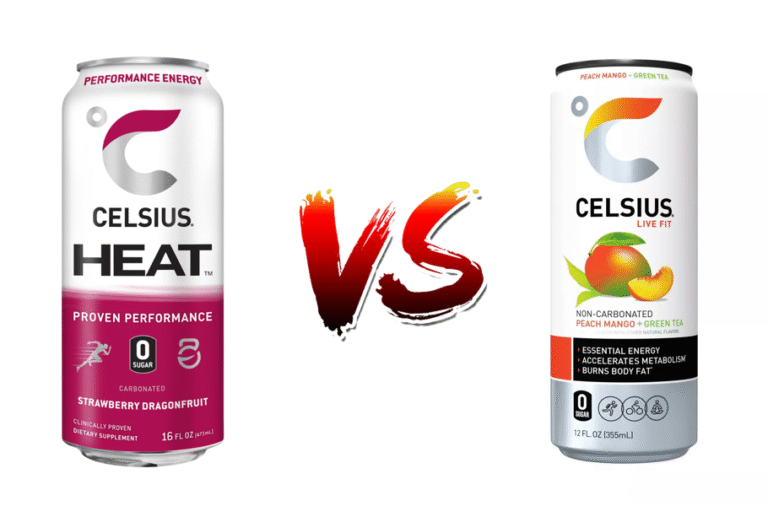Gatorlyte vs Gatorade: 5 Key Differences for Better Hydration
When it comes to staying hydrated, Gatorlyte vs Gatorade are two top choices. Both drinks are designed to replenish electrolytes, but they offer different benefits. Gatorade is a go-to for general hydration, while Gatorlyte is formulated for faster, more efficient rehydration with fewer sugars.
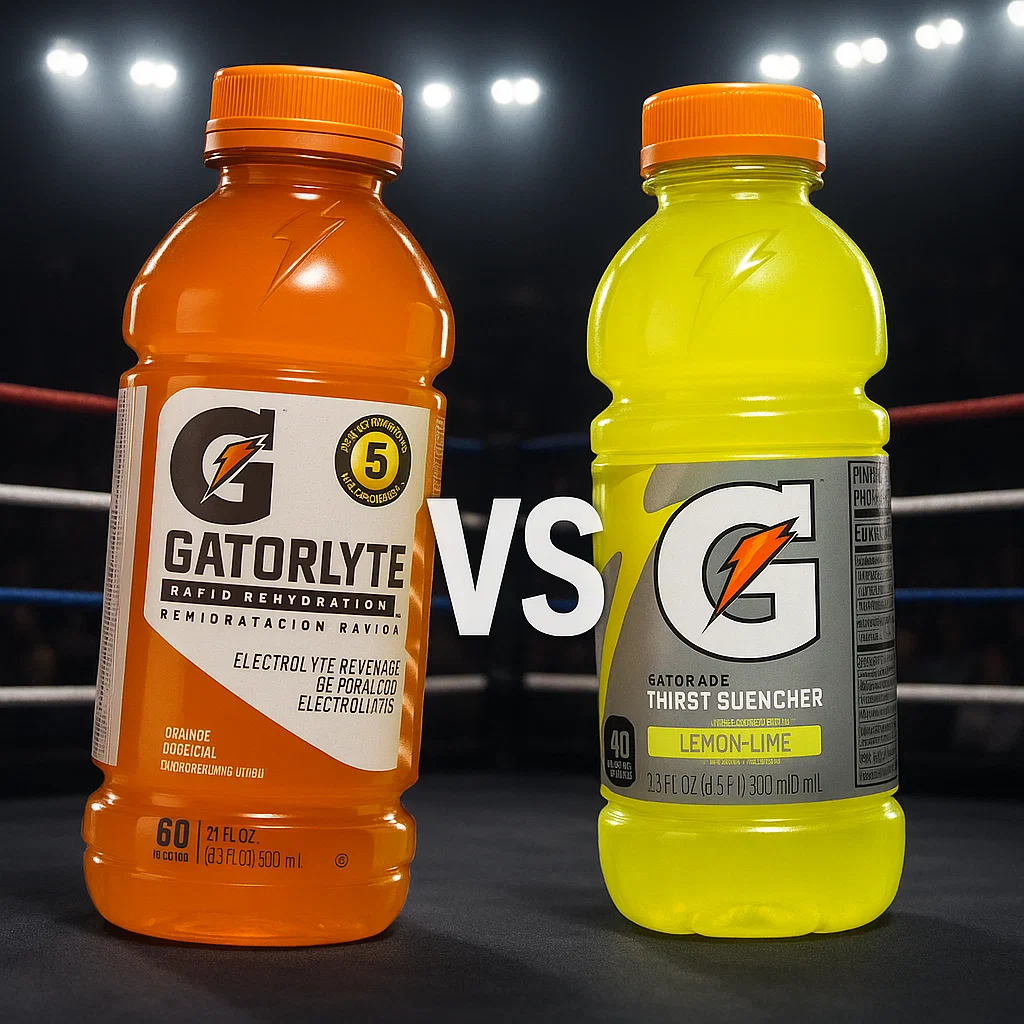
In this article, we’ll break down the differences between Gatorlyte and Gatorade to help you decide which one is best for your hydration needs.
Table of Contents
Ingredient Profile
When comparing Gatorlyte vs Gatorade, it’s important to understand their key ingredients. Both drinks contain essential electrolytes, but Gatorlyte has a higher concentration of these compounds for faster hydration with less sugar.
Gatorade
Gatorade is a well-known sports drink formulated to provide hydration and energy through its mix of water, electrolytes, and sugar. The key compounds in Gatorade include:
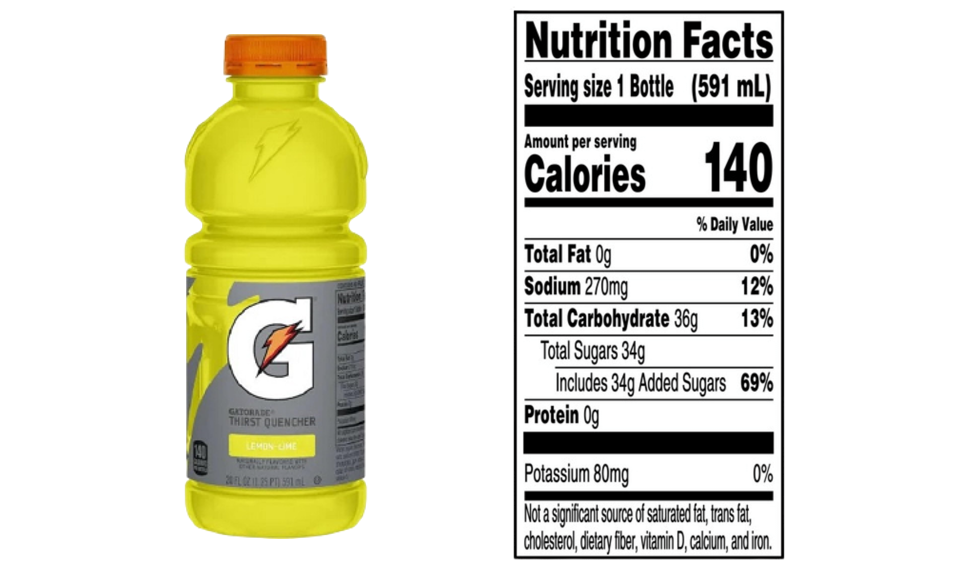
Gatorade is a widely recognized sports drink formulated to help athletes maintain hydration and energy during physical activity. Its key ingredients include:
- Sodium (270 mg per 20 fl oz): Essential for maintaining fluid balance and preventing muscle cramps.
- Potassium (80 mg per 20 fl oz): Supports heart and muscle function.
- Sugars (34 g per 20 fl oz): Provides quick energy during physical activity.
- Magnesium (20 mg per 20 fl oz): Helps regulate muscle function and maintain hydration.
Gatorade is designed to hydrate during moderate exercise and physical activities, offering a balance of electrolytes and energy.
Gatorlyte
Gatorlyte, a newer variant in the Gatorade family, is designed for faster and more effective hydration with an emphasis on electrolytes. Its key ingredients are:
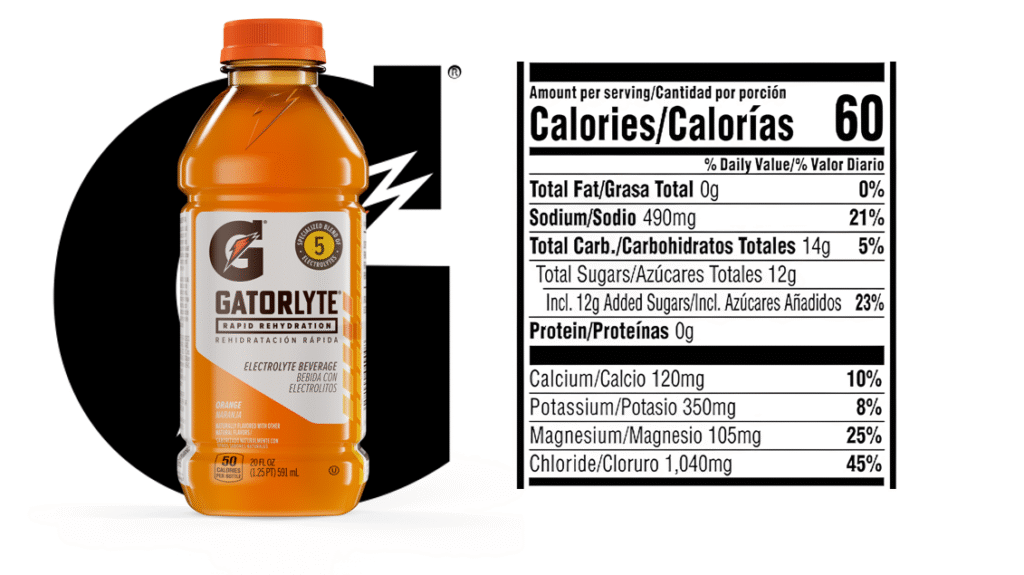
- Sodium (490 mg per 20 fl oz): Much higher sodium content helps with faster fluid retention and rehydration.
- Potassium (350 mg per 20 fl oz): Aids in muscle recovery and helps balance electrolytes.
- Magnesium (105 mg per 20 fl oz): Supports muscle function and reduces cramping.
- Calcium (120 mg per 20 fl oz): Contributes to muscle contraction and hydration.
- Chloride (1,040 mg per 20 fl oz): Helps maintain fluid balance.
Gatorlyte is crafted for intense hydration needs, often suitable for athletes or individuals recovering from dehydration due to intense activities or heat.
Summary of Key Differences
Here’s a quick comparison of the key differences between Gatorade vs Gatorlyte:
| Compound | Gatorade (per 20 fl oz) | Gatorlyte (per 20 fl oz) |
|---|---|---|
| Sodium | 270 mg | 490 mg |
| Potassium | 80 mg | 350 mg |
| Magnesium | 20 mg | 105 mg |
| Calcium | None | 120 mg |
| Chloride | None | 1,040 mg |
| Sugars | 34 g | 12 g |
Flavors & Mixability
Flavors and mixability are essential for choosing the right hydration drink. Both Gatorlyte and Gatorade offer enjoyable tastes, but they differ in sweetness and variety.
Gatorade
Gatorade offers a wide variety of flavors, including popular ones like Cool Blue, Lemon-Lime, and Fruit Punch. It mixes easily with water, providing a refreshing taste that many consumers enjoy.
Gatorlyte
Gatorlyte, while fewer in flavor options, is focused more on its high electrolyte concentration. The flavors available are still enjoyable but tend to be less sugary, giving a more neutral taste for hydration-focused individuals.
Price & Value
Price and value are key considerations when choosing between Gatorlyte and Gatorade. While both products serve the same purpose, the cost difference is an important factor for many consumers.
Gatorade
Gatorade is widely available and affordable, making it a go-to for regular hydration needs. On average, a 12-pack of Gatorade costs between $5–$7, which makes it an economical option for casual consumers.
Gatorlyte
Gatorlyte, as a more specialized product, tends to be slightly more expensive. A pack of 12 is generally priced at $15–$18, reflecting its higher electrolyte concentration and targeted hydration benefits.
Gatorade vs Gatorlyte: Which One Should You Choose?
Choosing between Gatorlyte vs Gatorade depends on your hydration needs, physical activity level, and personal preferences.
Choose Gatorade if:
- You need a general hydration solution for moderate workouts or daily physical activities.
- You enjoy a variety of flavors and prefer a sweeter taste for energy during exercise.
- You’re looking for an affordable, readily available option for hydration.
Choose Gatorlyte if:
- You need a drink that offers higher electrolyte levels for faster and more efficient hydration.
- You’re recovering from extreme dehydration due to heat or intense physical exertion.
- You want a low-sugar, higher-electrolyte option for rehydrating.
About the Brands
Both Gatorlyte and Gatorade are from the same parent company, PepsiCo, but they cater to different consumer needs.
Gatorade
Gatorade, owned by PepsiCo, is one of the world’s leading sports drink brands. Known for its broad range of hydration products, Gatorade has been a staple for athletes since its creation in 1965.
Gatorlyte
Gatorlyte is a newer innovation under the Gatorade brand, designed for extreme hydration needs. It provides advanced electrolyte replenishment while reducing sugar content, making it ideal for those who need quick rehydration.
Final Thoughts
Both Gatorade and Gatorlyte serve the purpose of hydration but target different needs. Gatorade remains an excellent choice for general use and moderate hydration, while Gatorlyte is ideal for those who require rapid, efficient electrolyte replenishment during or after intense physical activity. Your choice depends on your hydration goals, budget, and the level of exertion you’re facing.
FAQ: Gatorlyte vs Gatorade
Q: Does Gatorlyte taste better than Gatorade?
A: Gatorlyte has a less sugary taste, so it may appeal to those who prefer a more neutral flavor for hydration. Gatorade, on the other hand, offers sweeter, more robust flavors.
Q: Which one has more electrolytes?
A: Gatorlyte has a higher concentration of electrolytes, especially sodium, making it more suitable for extreme hydration needs.
Q: Is Gatorlyte healthier than Gatorade?
A: Gatorlyte is lower in sugar and offers higher electrolyte content, which could be considered healthier for those needing efficient hydration during intense activity or heat. However, Gatorade is a great choice for regular hydration needs.
Q: Is Powerade Zero better than Gatorade Zero for intense workouts?
A: Yes, Powerade Zero is often the better choice for intense workouts. Its higher sodium content (400mg per 500ml) helps replenish electrolytes lost through sweat during high-intensity or long-duration activities. This makes it ideal for athletes engaged in endurance sports or those who sweat heavily.

With a Bachelor’s in Biology and Health and a Master’s degree in Quality Control of Foods and Drugs, I review dietary supplements using scientific analysis, ingredient verification, and safety standards to provide transparent and reliable recommendations.

